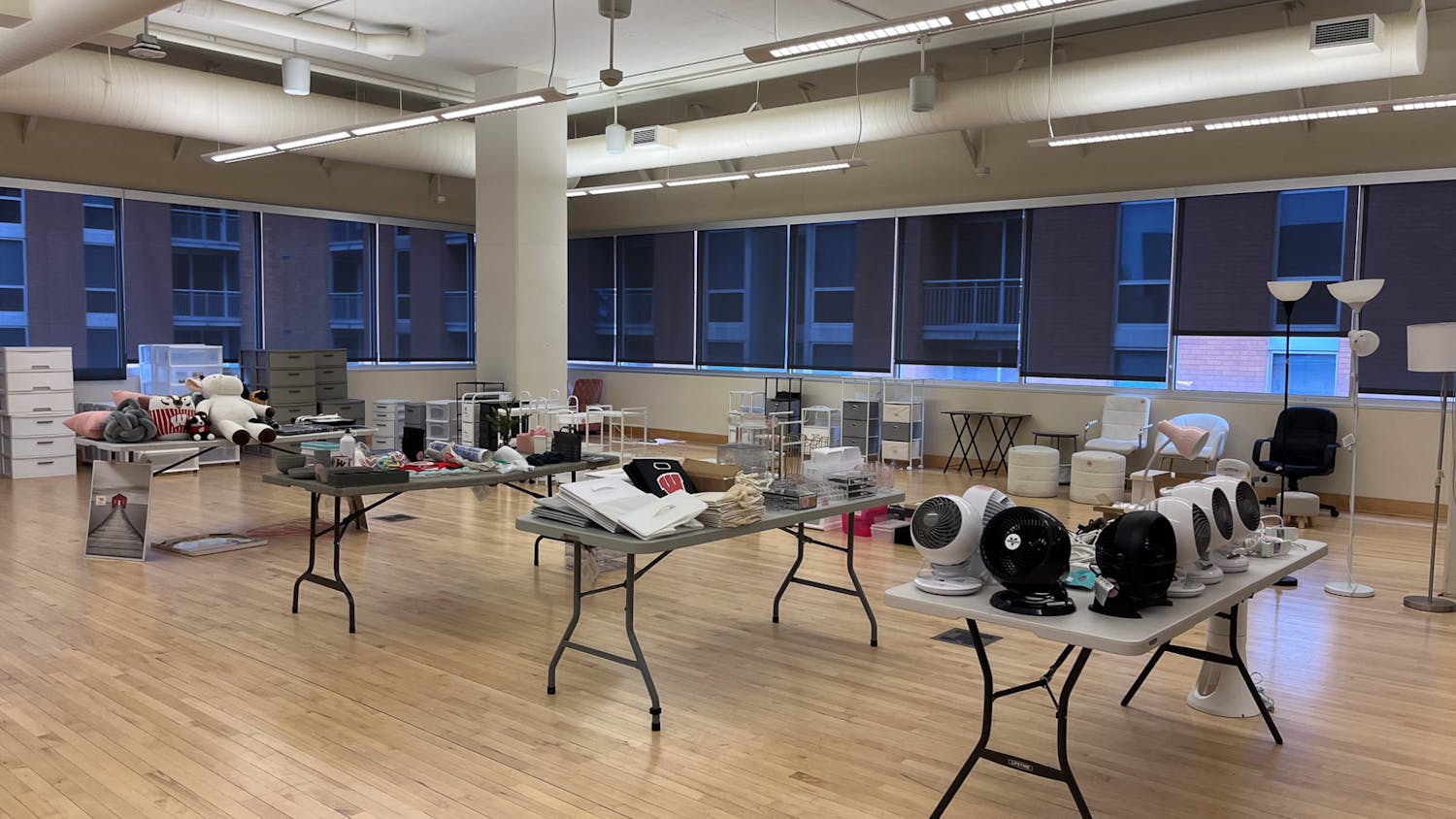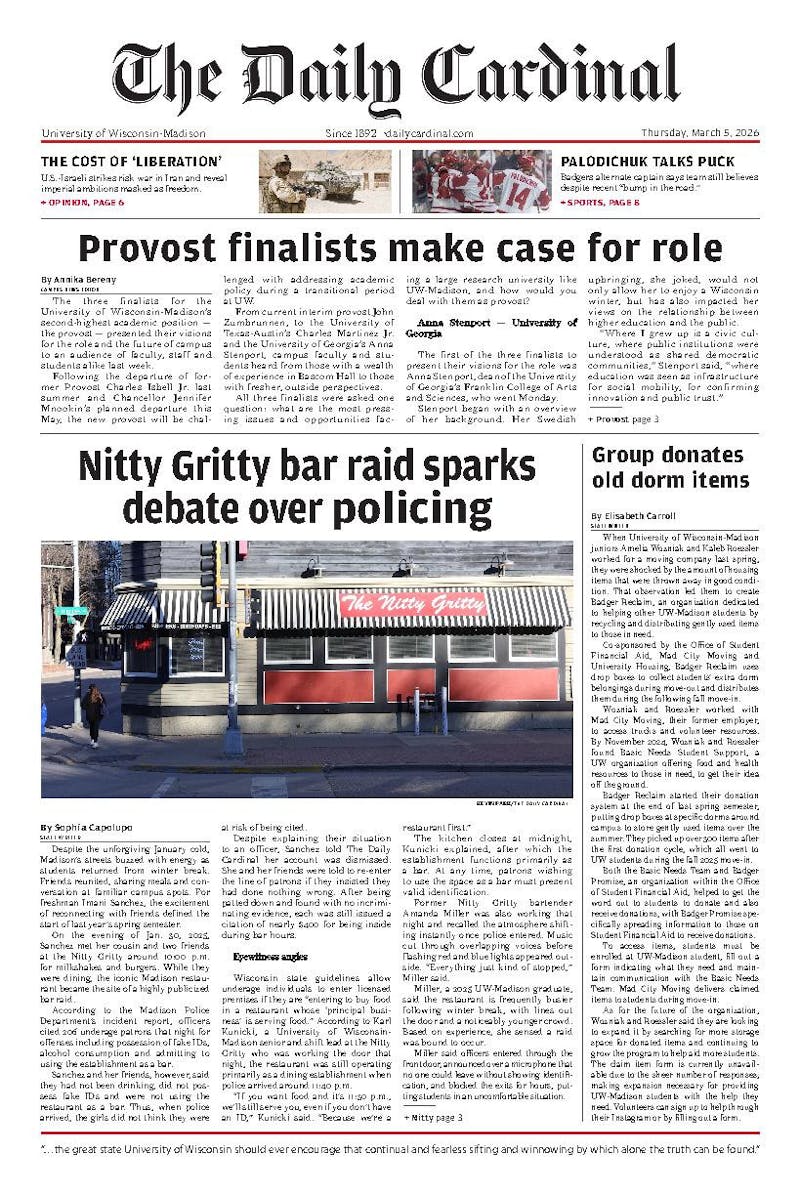“Do you hate America?”
This was one of the questions Saad Siddiqui, secretary of the University of Wisconsin-Madison Muslim Students Association, remembers hearing while growing up as a Muslim in a post-9/11 world.
A panel on the origin, impacts and iterations of Islamophobia in the United States, where Siddiqui told his story, brought together UW-Madison professors, students and experts Friday.
The MSA and the Muslim-Jewish Volunteer Initiative, along with the Lubar Institute for the Study of Abrahamic Religions, co-sponsored the event, which featured six speakers and two First Wave performances, each touching on a different nuance of Islamophobia.
Islamophobia is a form of bigotry that blames an individual’s religion, gender or race for the crimes they have committed, according to speaker Ahmed Rehab, the leader of Council of American Islamic Affairs in Chicago.
“When someone commits a crime,” Rehab said, “that person is responsible for their action, not everyone who happens to come from the larger domain they come from.”
Islamophobia, he said, is an act of generalization and oversimplification of Islam caused in part by the narrative about Islam perpetuated by the media. For many Americans, the first introduction to Islam was through a “limited, myopic lens of conflict,” Rehab said.
Even prior to 9/11, American media coverage associated Islam with violent conflict, such as the Iranian Revolution of 1970, the Iran hostage crisis and the Israel-Palestine conflict, Rehab said.
Siddiqui said that this type of portrayal affected his own perception of Islam.
“If you asked me a year ago [why the terrorists attacked the US], I would have said, because they were Muslim,” Siddiqui said. “I had internalized everything bad I heard about Islam in the past 10 years.”
Siddiqui said getting to know his grandfather changed the way he reflected on his own Muslim identity. His grandfather was a lawyer who fought for justice against tyrannical princes, facing numerous stints in jail.
According to Siddiqui, his grandfather’s Muslim identity motivated him to act on those principles.
“We have been told to associate Muslims with terrorists and Islam with evil. These are walls that will not come down easily,” said Siddiqui. “The only way we can grow as people and as a nation is by knowing each other.”






